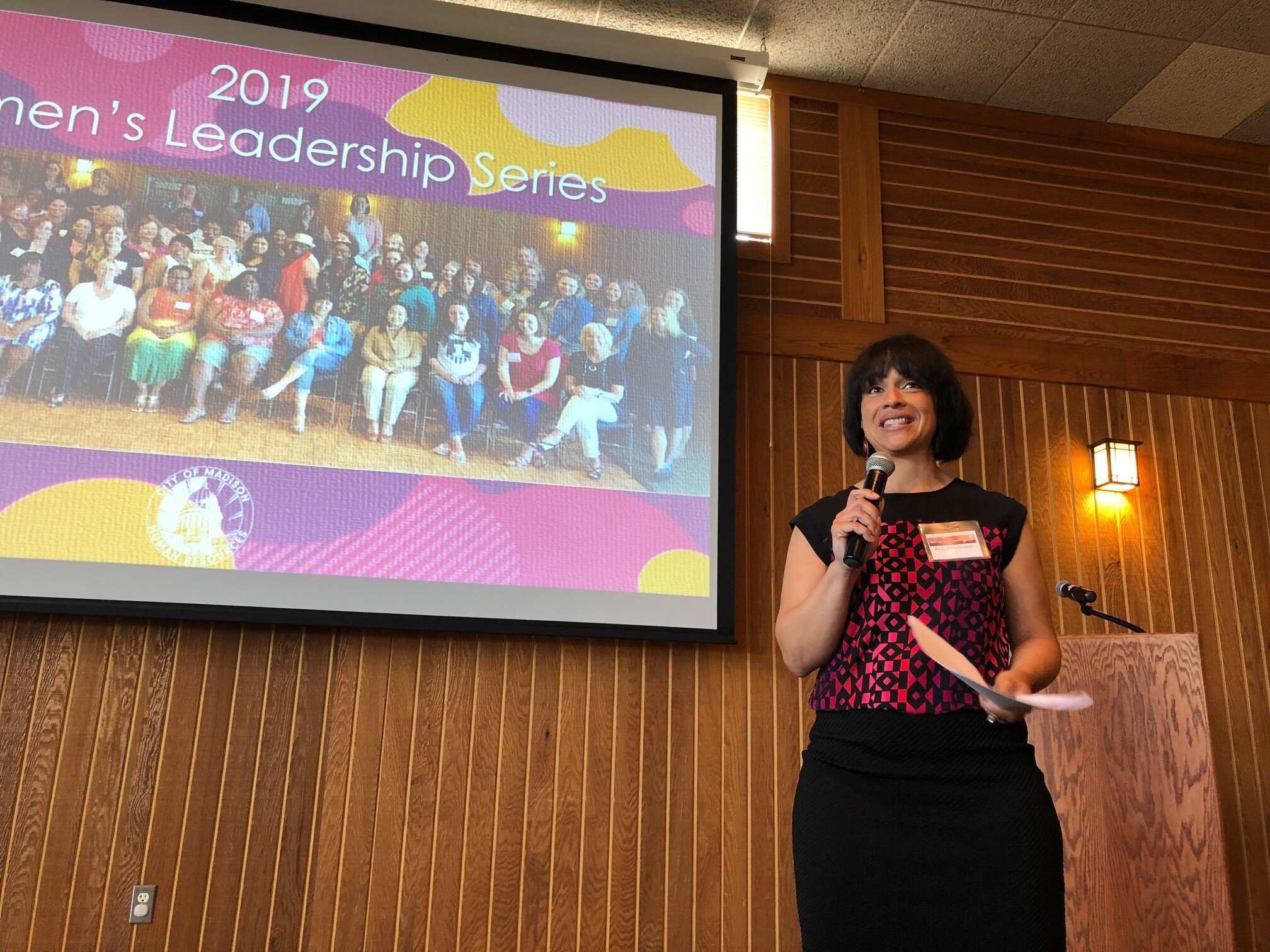
MEDIA & PUBLICATIONS
nINA in the news
March 2025
nINA Collective
The High Cost of Rolling Back DEI: A Call to Action for Workplace Fairness
March 2024
nINA Collective
nINA Collective celebrates four years, a growing team, and growing opportunities
Madison365 ARTICLE
October 2021
Jacquelyn Boggess
UW Madison School of Social Work Podcast: JEDI Definitions
PODCAST
March 2020
nINA Collective
nINA COLLECTIVE PRESS RELEASE
“The Partnership Program has had the great fortune of working closely with the nINA Collective...they were sensitive to the many perspectives and experiences of the committee members and engaged each of them with authenticity. Our members were extremely pleased with the time they were able to spend with the nINA Collective and have expressed great interest in continuing work with them. This team in particular understands how language can be used to bring people together versus push them apart...In addition, they are a joy to work with. We would recommend them unequivocally, and we are excited to support their launch!”.
Andrea J Dearlove, Senior Program Officer at the Wisconsin Partnership Program
nINA Collective Launch Press Release
January 30, 2019
ananda mirilli
ananda mirilli: Students need equity, not always equality, to thrive
CAP TIMES ARTICLE
I have over 10 years of experience working with families, students and educators in Madison. I have demonstrated a lifetime commitment to serving all students, with a specific focus on students of color and students receiving special education services.
As part of this commitment, I completed my master's degree in educational leadership policy at UW-Madison. I have worked as the restorative justice director at YWCA Madison, as the family, youth and community coordinator at Madison Metropolitan School District, and currently as the educational consultant at the Department of Public Instruction. I am also a parent, a volunteer, and a dedicated community member. …
August 25, 2015
Jacquelyn Boggess
Body-Worn Video for the Madison Police Department
COMMUNITY ENGAGEMENT SESSIONS
[Excerpts from the Introduction:]
The City of Madison contracted with the YWCA-Madison and The Center for Family Policy and Practice (CFFPP) to engage individuals from marginalized and vulnerable communities in discussions about police body-worn video (BWV) cameras for Madison police officers. The objective was to record community members’ input as to the potential effectiveness of this policy for the Madison (MPD). City officials also asked us to engage participants in a broader discussion of the state of police/community relationship in Madison. All stakeholders agreed, this relationship is the foundation of successful police enforcement policy, and participants were eager to discuss this topic. We asked these Madison residents about the impact of enforcement policy on communities, and how a body camera policy might affect their lives. …
We spoke with people from Madison’s Latino, African American, LGBTQ and Hmong communities, and though they were not strongly in favor of or against the use of BWV, they were eager to talk about current police policy and practice in Madison. City-employee interviewees and focus groups seemed to think that these communities would advocate for BWV. However, as it turns out, there was broad agreement and a strong feeling that a BWV policy would not respond to concerns and fears about Madison policing. On the topic of body cameras, participants expressed two major concerns, (1) police officer/agency manipulation of the camera device or of the video; and (2) unwarranted reliance on the video as incontrovertible evidence of police incidents. Another important point of concern in the discussions of BWV was the impact of the cameras on citizens’ privacy. Each of these points is outlined [in the full report].
Focus group participants clearly understand the need for police protection and civic order, and they had numerous positive examples of individual officers and incidents. Generally, however, across groups, participants articulated an overriding fear and distrust of police, and a strong belief that policing in Madison’s vulnerable communities is driven by racial discrimination and profiling. …
